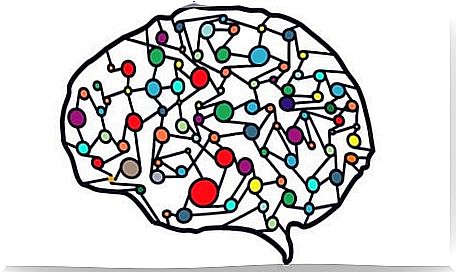Assessment Through Accessibility Heuristics: Speaking On Impulse

Assessment through accessibility heuristics largely explains why advertising works. When we need to buy a product, the brands we have seen on TV or in social networks usually come to mind. In fact, some brands are so popular that they have become generic.
People are not always aware that they sometimes act and respond with the help of very simple heuristics, and above all respond with what they will first think of.
For example, if someone asks us which is the most poisonous animal in the world, we will probably think of snakes or spiders. We trust all the information that is in our memories, information that we collect as we go through life. But we do not question this information. In fact, the sea wasp (Chironex fleckeri, a jellyfish in the waters north of Australia) is the most venomous creature we know of.
There is another thing that is important to keep in mind. It is that we make an assessment through accessibility heuristics which is the reason for much of the incorrect information that we unconsciously carry with us and which blurs reality. For example, the fear of flying in an airplane is more common than the fear of driving a car. However, it is much more likely to experience a tragic traffic accident than a tragic plane crash.
Another example is that people buy tickets every day and tell themselves that they will win sooner or later. However, the probability of winning can be as small as 1 in 15 million. We all benefit in some way from the information that is most accessible in our memory and believe in good faith that it is correct.

Assessment through accessibility heuristics: what is it?
Imagine two people talking about the best place to go on vacation. Suddenly, in the middle of the conversation, the name of a paradisiacal, almost perfect place comes up.
However, it does not take long before one of them remembers reading something in the media about the place. They remember that the number of thefts is quite high and say this as if on impulse. They add that it may be best to forget the idea.
With this example, we can see how the mind uses very rudimentary mental shortcuts to make decisions. It does this by starting from the information that is most easily accessible, wherever that information can come from.
In this case, the person concluded that it is best to forget the idea because of an article he had read. We do not compare further information, or analyze other factors. The case is settled.
The whole area of human decision-making and how we decide for and against different alternatives is an area that has always interested psychology. However, it was not until 1970 that Amos Tversky and Daniel Kahneman discovered what they defined as accessibility heuristics or accessibility bias.
They described how, when evaluating a situation or a decision, we always use what is most readily available in our minds. To understand it better, let’s take a closer look at this.
We place the greatest emphasis on the latest information and the one with the greatest emotional impact
In particular, the human mind always retains the latest information it has received. In the same way, we also tend to remember things that have a high emotional connection more easily. In the world of marketing and advertising, this is something that is well known. Thus, in this industry, one tries to make sure to take advantage of this fact by trying to arouse emotions in potential customers.
For example, if you are going to buy some toilet paper, it may be a certain brand that easily comes into your mind; maybe one that has an adorable golden retriever on the package. Advertising makes us go to the store with the feeling that certain products are familiar to us, and we choose them almost without knowing why.
Accessibility heuristics make us make decisions by using what is always “at hand” in our latest and most emotional memory.
The impact of experience in accessibility heuristics
There is a third factor about accessibility heuristics that we should consider. Going through certain experiences ourselves means that we remember them better and that they become more easily accessible in our minds.
For example, if someone asks us what is the worst thing a person can experience, we can say “going through a depression”, if that is what we have just experienced.
For others, the worst experience may be losing a parent at a young age, because that’s what happened to them. We do not always consider other alternatives because we have simply not experienced them, and our brains do not take them into account.

An assessment through accessibility heuristics helps us save time and mental energy
Scott Plous, a social psychologist and professor of psychology at the Department of Psychology at Wesleyan University, is one of the people who has studied accessibility heuristics the most. In one of his books he explains the following:
If the mind works according to these schemes, it is basically due to the following facts: Throughout our development, the brain has worked to try to enable us to actively generate reactions and behaviors. The goal is to save time and energy. We must optimize our mental processes and act quickly to survive and adapt to the environment.
What does this mean? This means that assessment through accessibility heuristics is always a shortcut that helps you to effectively evaluate different options. This is regardless of whether it gives you valid information. You treat certain facts as if they were the only valid ones in the world. In this way, you simplify the situations, which means that you can respond to them quickly.
Sometimes this is useful. However, it is always a good idea to make a little effort to also consider other information. This given that your brain is full of many different prejudices. Keep this in mind, put your thoughts in relation to others and give yourself time to think. It can give you many benefits in life, so do not forget about this mechanism.









